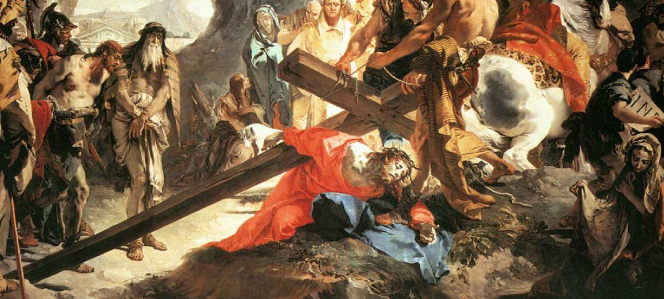A few weeks ago, an acquaintance of mine who is a Catholic M.D. said, referring to the bio-ethical challenges he constantly faces,
“Sometimes, the unending conflict I face in doing my medical work gets exhausting. And when I’m tired and frustrated, I think, “It’d so much easier to just give in on these difficult issues and just do my work in peace.” Then after I clear my head with a long walk, vent to my wife and pray, I just keep on.”
Amusing Moderation
In C.S. Lewis’ brilliant analysis of diabolical-logic, The Screwtape Letters, the demon Screwtape says, “A moderated religion is as good for us as no religion at all—and more amusing.”
Christianity has always found itself caught in the intractable tensions that war between “otherness and sameness,” i.e. the Christian Creed always more or less distinguishes Christians from their socio-cultural surroundings, while those surroundings, seeking to ease those uncomfortable tensions in an accommodated equilibrium, relentlessly invite and/or coerce Christians into moderating their (especially moral) contrary positions that fuel those tensions.
Christians, if they are to ensure that this accommodating momentum does not tempt them to betray their core identity, must celebrate with paschal joy the sometimes painful tensions that flow from maintaining a clear identity in Christ. And from the midst of that celebration, they must go out into the world to invite their thinking-otherwise neighbors to “come and see,” in the midst of our Church, the place where Jesus abides.
Christ and Culture
It’s our belief as Catholics that Jesus, when He encounters un-redeemed culture, liberates and honors all that is true and good and beautiful therein, even as He purifies all that is unworthy of the grandeur of the divine image in humanity. That makes for a restless relationship between the Christian and the world that never finds final resolve this side of Paradise. We are sojourners who are daily reminded this is not our true and lasting home.
But this is the blessed burden of the Church’s mission that she may not lay down, weary as she may at times become. The redeeming work Jesus wishes to accomplish in the world of culture happens in and through the labor, witness and fidelity of His Body, the Church. That means that if the Church in any given place and time fails to be who she is in Christ, the world around her, adrift in a maze of lies that tend toward death, will be unjustly deprived of the One who is the Way, the Truth and the Life.
Living in tension is never easy, but don’t look for those tensions to go away. The Cross, the densest symbol of the Christian’s tense relationship to the world, is thedefining mark of in-Christ identity. Bl. John Paul II often said that Christians were called to be “signs of contradiction,” though for us that contradiction is remedial and exists to expose the mortal wound of humanity’s alienation from God to Christ’s healing Rays, offering humanity the reconciliation with God that alone firmly grounds a culture of life, a society of justice and a civilization of love. And we have great cause for hope: absolutely every effort formed by faith, consecrated in prayer and offered in hope to a restless world hungry for God’s love bears within itself infinite possibility which, in God’s indefectible providence, is never without salutary effect. After every crucifixion awaits a resurrection.
John and Jesus
St. John the Baptist was the wild, unkempt prophet of Immoderate Religion who refused to accommodate the words given him by God. In this way he worthily prepared the way for Jesus, the Word of God made flesh, who was nailed to the Sign of Contradiction for the life of the world.
To live that volatile vocation as a Church, and as a Christian, is life’s supreme adventure, while to refuse it is life’s ultimate tragedy.
So next time you have that awkward moment, that tense exchange, that taste of rejection because you belong to Christ — well, He said it best,
“Rejoice and be glad, for your reward will be great in heaven. Thus they persecuted the prophets who were before you.” — Matt. 5:11
